Why India’s prime minister Modi is visiting Uganda
Our Distinguished Fellow in Foreign Policy Studies, Amb. Rajiv Bhatia, was mentioned in an article in the Daily Monitor leading up to PM Modi’s visit to Uganda. Read the full article here.
 Courtesy:
Courtesy:
Our Distinguished Fellow in Foreign Policy Studies, Amb. Rajiv Bhatia, was mentioned in an article in the Daily Monitor leading up to PM Modi’s visit to Uganda. Read the full article here.
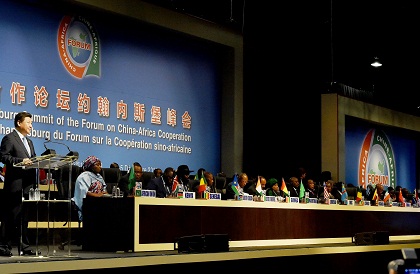 Courtesy: GovernmentZA/ Flickr
Courtesy: GovernmentZA/ Flickr
China’s judicious deployment of economic diplomacy—in sectors ranging from infrastructure and agriculture to skill development--has enabled it to develop relations with several African countries. India, Africa’s oldest partner, which is diversifying its own relationship, can replicate parts of China’s approach
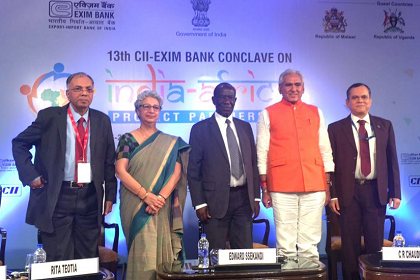 Courtesy: Exim Bank of India
Courtesy: Exim Bank of India
The India-Africa economic partnership lags some way behind the diplomatic reciprocity the two countries share. Africa has had a trade surplus with India in the past decade, but increasing two-way trade of goods and services across sectors calls for serious promotional measures and removal of non-tariff barriers. The government, Indian business and their African partners need to devise an action plan that can take trade to $100 billion and investment to $75 billion by 2022
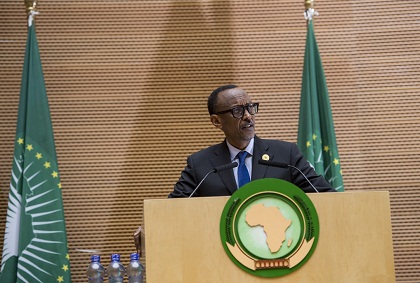 Courtesy: Paul Kagame/ Flickr
Courtesy: Paul Kagame/ Flickr
The African Union stands at a crossroads in its history. It needs to change direction to be relevant and show its members the path to prosperity. With Rwandan president Paul Kagame now at the helm, it may have a chance
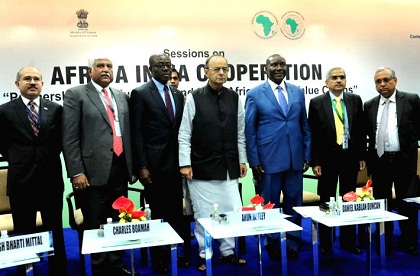 Courtesy: Prokerala
Courtesy: Prokerala
India seems to have departed from catch-all, overarching initiatives in Africa to rather more nuanced ways of making its contribution felt, such as helping fashion G20’s ‘Compact with Africa’. Many countries are also keen to avail of Indian companies’ knowledge and experience of investing in Africa and the presence of the large diaspora—and such trilateral cooperation is to be welcomed

The past decade has witnessed an evolution of India-Africa relations especially since the implementation of Modi's Act East policy. There is also a growing realisation of the strategic and geopolitical value of the Indian Ocean region. This speech highlights the policies needed to strengthen India-Kenya relations and tap the wealth of resources in this Blue Economy.
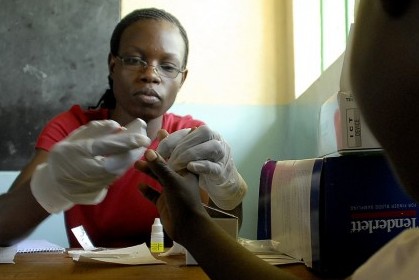 Courtesy: Flickr/U.S. Army Africa
Courtesy: Flickr/U.S. Army Africa
New Delhi now has the capacity to move beyond the basics of economic diplomacy by using the strengths of India's private sector in healthcare. Africa would welcome such an initiative, which will improve the health and development capabilities of African countries. This will also serve India’s geopolitical objectives and can precede a similar healthcare rollout to other regions
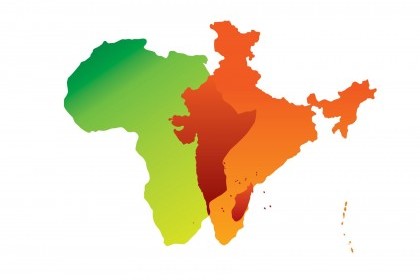 Courtesy: India Africa Forum Summit 2015
Courtesy: India Africa Forum Summit 2015
Prime Minister Modi’s tour of four African countries will seek to build upon recent high-level visits to the continent, providing fresh impetus for the reinforcement of India-Africa relations in matters of diplomacy, business, security, and energy while putting to rest criticism of India’s visibility deficit in Africa. However, the onus to harness this momentum now lies with other stakeholders.
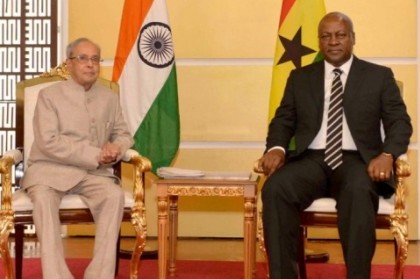 Courtesy: The First Mail
Courtesy: The First Mail
India now sees Africa as a promising market for Indian goods, services, and investments. This is evident in the government’s recent concerted focus on the India-Africa relationship—high profile visits by top leaders to African countries, a recasting of India’s development diplomacy, and an attempt to match action to past promises
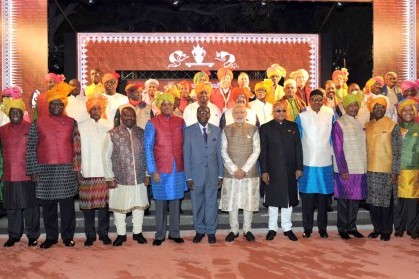 Courtesy: MEA / Flickr
Courtesy: MEA / Flickr
India has hosted a plethora of India-Africa conferences, expressing commitment to deepen mutual cooperation. It is further expected that the president, vice president, and prime minister may visit Africa this year, to follow up actively. Indeed, a senior official predicts Africa will even become “the diplomatic flavour in 2016”. An analysis.